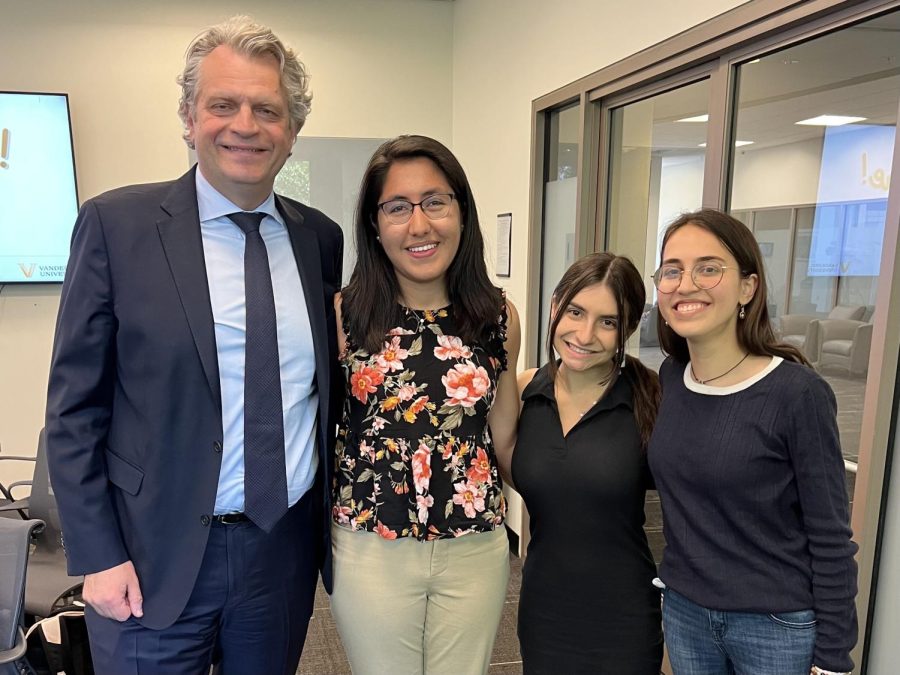The U.S. Senate Finance Committee released a report this past April entitled “How State Attorneys General Target Transgender Youth and Adults by Weaponizing the Medicaid Program and their Health Oversight Authority” which criticized the way in which Vanderbilt University Medical Center cooperated in an investigation by the Tennessee Attorney General Jonathan Skrmetti, ongoing since September 2022.
In the investigation of billing fraud following accusations alleging VUMC’s engagement in transgender medical care for its high profitability, Skrmetti’s office sent three civil investigative demands to VUMC’s Transgender Health Clinic requesting medical records of patients using TennCare, Tennessee’s Medicaid program. The CIDs resulted in VUMC sending the Attorney General over 65,000 pages of documents including medical and billing records, employment contracts and volunteer agreements.
Under the Health Insurance Portability and Accountability Act, healthcare providers are allowed to share identifying patient information without their consent to law enforcement individuals provided the information passes a three-part test of relevance, specificity and necessity of the information identifying patients. The Senate report said VUMC should have challenged whether the Attorney General’s demands met HIPAA’s requirements.
“There were multiple, obvious avenues VUMC could have pursued to limit the sensitive patient data it disclosed to the Tennessee AG, including pushing more aggressively to limit the information to de-identified information,” the report read.
The report cited examples of other hospitals around the country refusing the demands of state attorneys general to release patient records due to privacy concerns. In a statement to The Hustler, Michael Regier, VUMC general counsel and secretary, said VUMC disputes the report’s claims and sent a letter detailing its concerns before the report was released.
“Under the current law, state and federal government authorities are permitted to seek medical records for investigations, and healthcare providers must comply. In this case, we made every effort to both protect our patients and follow the law,” Regier said. “At no point did we violate privacy laws, and we strongly disagree with any suggestion that we did. VUMC remains committed to protecting patient privacy under the law and ensuring all who come to our facilities receive world-class medical care.”
Carrie Russell, political science professor and assistant dean of undergraduate education, said that an argument could be made to verify the report’s criticism.
“On its face, given the privacy interests at stake, the decision to provide the arguably identifiable information seems akin to giving the bully lunch money without putting up a fight,” Russell said in a message to The Hustler. “On the other hand, Vanderbilt walks a tightrope in Tennessee on just about every civil liberty issue imaginable. To exist in this legislative climate, knowing when to hold and when to fold is a fundamental skill.”
Russell also said the financial incentives present in modern medicine make all decisions made by hospital administrators fair game for critique.
“If these issues were truly siloed to ‘doctor-patient’ discussions and decisions, politicians and hedge-fund managers would have to devote their time and attention elsewhere,” Russell said. “But that is not the case in modern medicine.”
Junior Terra Lee, oSTEM vice president, described the release of patient records as “frightening” in a statement to The Hustler.
“We cannot imagine how unnerving this has been for patients who were interested in receiving treatment at VUMC’s transgender health clinic, especially those patients who were Vanderbilt students,” Lee said. “Releasing medical information breaches patients’ trust and implies the same care and protection for cisgender patients is not necessarily guaranteed for transgender patients.”
Lee highlighted the importance of protecting the privacy of patients.
“Further steps toward adequate and equitable medical care must involve protecting patient privacy, regardless of patients’ identities,” Lee said. “In the future, we must hope and demand that more effort is put toward protecting the medical records of all patients.”










